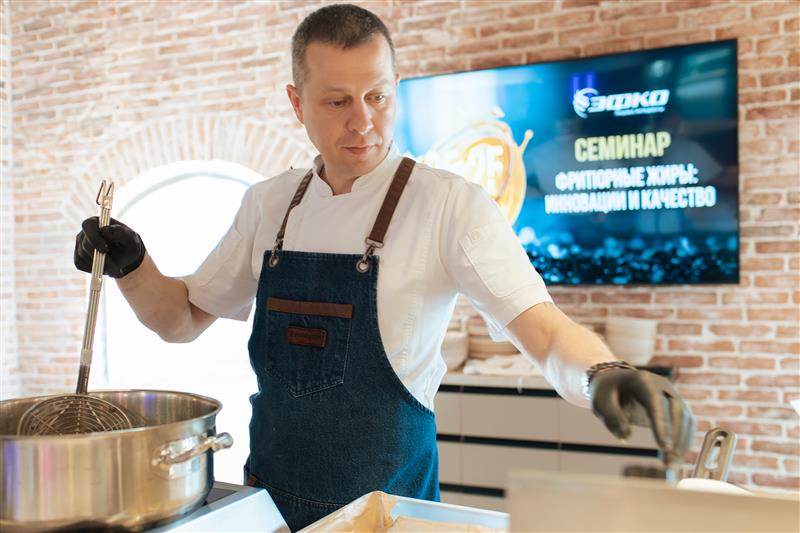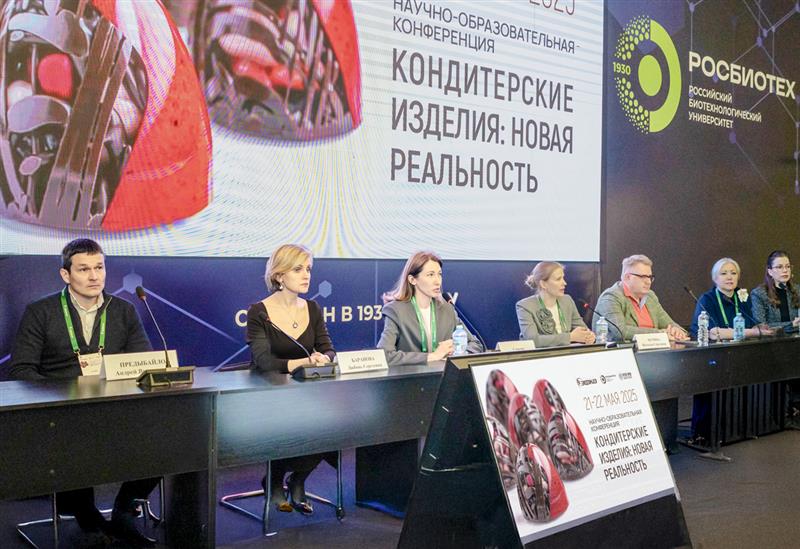Taste. Aroma. Golden crust. Frying fats are one of the most appetizing areas of the “EFKO” Oil & Fat Division. Deep-fat frying has long been the object of gastronomic experiments - from nuggets to camembert, olives and ice cream. What incentives does this segment have to develop so fast? What trends are there today? Can deep-fat frying be a part of a healthy lifestyle? Technologists, manufacturers and market experts have discussed these issues during the company's seminar "Deep-frying fats: innovations and quality", which took place in Moscow.
The Russian frying fat market has been showing a sustainable growth in recent years. According to analysts, it will have grown by another 5% by 2030. The key incentives are the fast-food industry development and the increase in the number of restaurants and cafes. People are eating out or ordering ready-made food to their homes (takeout) more and more these days.
What makes deep-fat frying so sustained to crises and changes in consumer preferences? Deep-fat fried products are usually chosen by people who are driven by a special feeling. The taste of French fries is associated with childhood, stops during a trip, rests and weekends. This is food that makes us a bit happier. Moreover, in the world where speed and emotions decide everything, this is an invaluable advantage. Large market chains have long realized what the “recipe for success” is. You can scale up interest in deep-fat fried dishes around the world by adapting them to local preferences – for example, adding spices in Asia or replacing meat with vegetables in India.
Natalia DanshinaDirector of Margarine Department |
“In Russia hundreds of new eating establishments open every year, and there deep-fat fried dishes are appearing in the menus more and more often. According to the research, 60% of Russian consumers regularly visit food courts and food trucks. Back in 2022, most large foodservice chains switched to “EFKO” products," said Natalia Danshina, Director of Margarine Department, Oil & Fat Division. “It’s our great pleasure to meet with technologists, plant managers and chief executive officers to discuss all issues related to the production of fried products. We not only follow the current trends, but also actively create new quality standards in the industry." |
The secret of taste is high-quality deep-frying oil. It must withstand a large number of fryings and not smoke. “EFKO” has a special manufacturing control program – from raw materials to finished products. Not only vegetable oils are tested but also additives used in production - emulsifiers, antioxidants, defoamers. Before shipment, the quality of frying fat is checked in the laboratory, and a tasting panel evaluates it as well.
Yulia AkhmedovaSenior Purchasing Manager at LLC “QSR System |
“We have been working with “EFKO” company for quite a long time,” said Yulia Akhmedova, Senior Purchasing Manager at LLC “QSR System”. "We worked together back in the days of our predecessor brand McDonald's and continue to cooperate actively. Colleagues share their expertise, so the entire manufacturing process – from seed to finished product – is completely transparent.” |
Actually the type of a product to be fried plays a role for choosing frying fat. For long-term frying of French fries, high-oleic sunflower oil is the best option. It is not absorbed into the product, and allows you to get a pleasant taste and aroma. There is such a product within our range – frying oil “Oilmix 1008”. But for the production of, for example, donuts, it is better to use frying oil based on palm olein - this is a guarantee of a golden crust and crispy texture.
Marina PerovaHead of the Purchasing Department at LLC “Lorenz Snack World Production Kirishi |
“We produce salty snacks, so it was very interesting to talk about modern manufacturing technologies,” said Marina Perova, Head of the Purchasing Department at LLC “Lorenz Snack World Production Kirishi”. “We plan to purchase high-oleic sunflower oil for frying chips and production salty snacks such as pretzels and pretzel sticks.” |
"Can deep-fat frying be a part of a healthy lifestyle? Over the past decades, industrial manufacturing of fried products has reached a new level. Frying operations have become automated, modern frying oils prevent the formation of harmful substances and foam.
“From a scientific point of view, many more useful substances are preserved when food is cooked quickly,” said Yuri Vlasenko, Executive Partner of the Strategic Bureau “Best Practices”. “One of the significant trends is enriching frying oils with antioxidants. Also, a variety of vegetable oils can be additionally included in the composition, for example, the trend of our time – avocado oil.”



